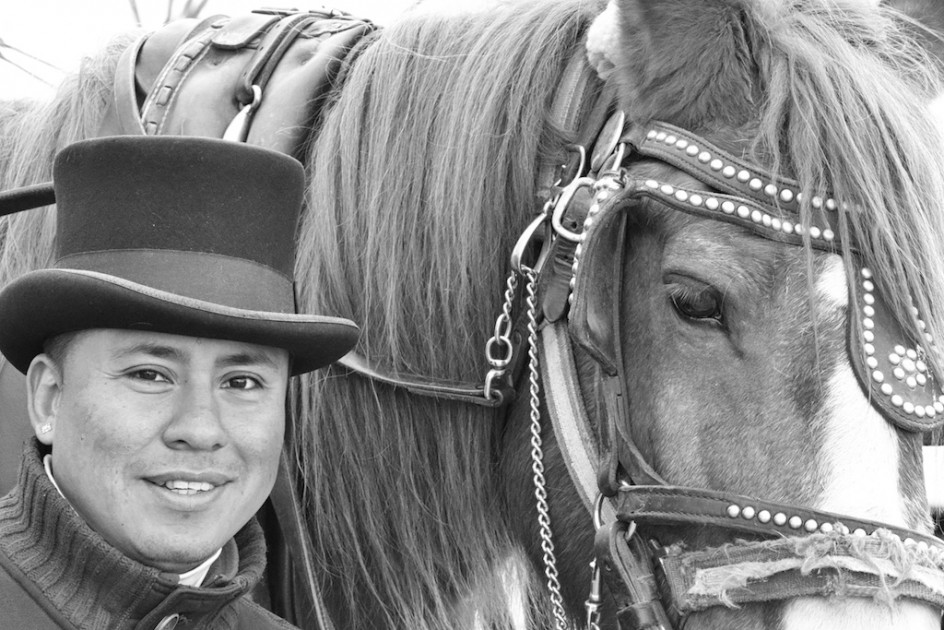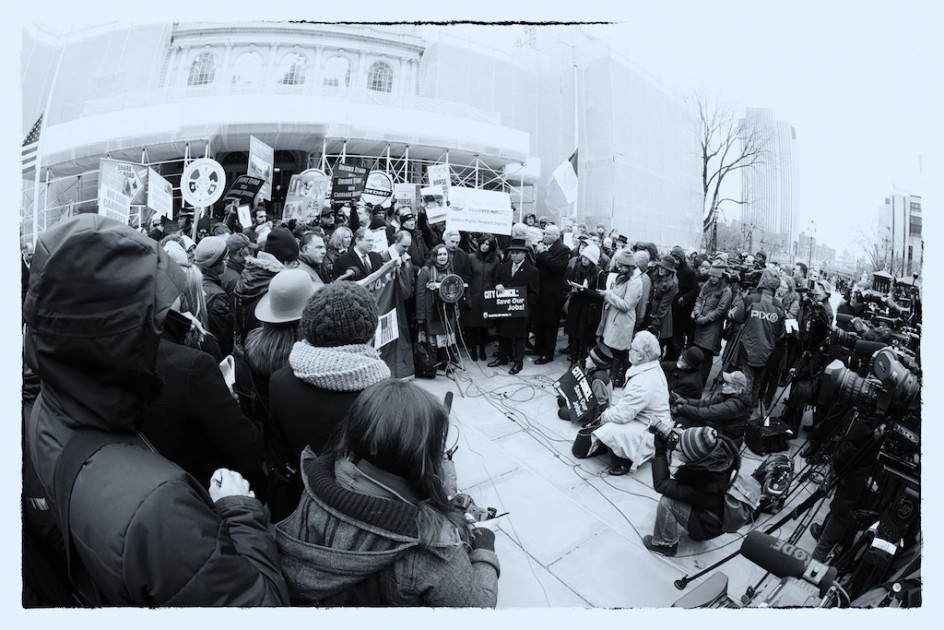
The victory won by the New York Carriage Horses and the carriage trade today in New York goes far beyond the city and it’s beautiful park and twisted politics.
The irony of the mayor’s second drubbing at the hands of carriage drivers and horses is that with just a few simple tweaks, he could have gotten almost all of what he wanted, a deal that would remove the horses from the streets and turn the carriage trade into a small and confined tourist amusement like the carousel or hot dog vendors.
He would be their landlord, assuming those stables were ever built, he could give them a death by a thousand cuts instead of one fatal blow.
But he is too arrogant to negotiate or even meet face-to-face with his targets. He never did visit the stables, as he said he would, he never could negotiate, listen, reason or even explain what will soon be regarded as one of the most destructive and weak-minded obsessions in big-city political history. The horses gave him a New York-sized thrashing, and it almost a certainty that this city council will not revisit the issue anytime soon, if ever.
The carriage trade is standing proud, the horses keep their safe and good jobs, the mayor has soiled himself on an issue he never seemed to grasp or know how to articulate. As for the mayor, he says he is undeterred and will press on with his war on the carriage trade. I suppose the horses may have to whup him again.
They are battle-hardened and ready.
New York is our biggest stage, and the message going out now is this: it is not cruel for domesticated animals like carriage horses to work and to live in cities, where they have dwelled for thousands of years, often in far worse and more crowded conditions than modern-day New York. They can be safe and content living among us. These are, in fact, the luckiest horses in the world.
The carriage trade has proven beyond any reasonable doubt that they can live and work with these animals, treat them well, submit to exhaustive regulations and oversight, and earn a living. The horses have thrived in New York, so do the individualistic and proud people who work with them. For now at least, that tradition can live.
The animal rights movement in its current incarnation has failed in the most profound way to tell the truth, to do its homework, to listen or learn, to negotiate or compromise. But more than any other failure, they have failed to speak for the true rights of animals, or act in their best interests. The drivers have saved their jobs, but up to 200 horses have saved their lives. They are not overworked, mistreated, sick or depressed.
It was wrong and unjust to claim that they are.
These groups do not speak for the rights of animals, they have no vision for the future, they are too often abusive and hateful. They are too often acting out of their own emotional needs and animal fantasies and projections, not the best interests of animals. They have lost the right to speak for the rights of animals or to determine their fates and futures. No independent agency or entity – medical, veterinary, political, police, health – has supported the claim that the horses are suffering in New York or are being treated cruelly and callously.
Every horse that remains among us is a triumph – for people, for the environment, for the idea that we need to keep animals among us and protect them, not drive them away and diminish them.
Increasingly, animal lovers and animals themselves are facing issues that relate much more to civil rights than animal welfare.
A law-abiding, profitable, well-regulated industry was targeted by one millionaire and several private organizations and nearly destroyed. People and their families living in fear and turmoil for years without any kind of due process. The horses were not abused, but the people in the carriage trade were. The city has not yet spoken to that issue, it is the elephant in the room. The mayor has allowed himself to become one of the most prominent enablers of abuse and cruelty in the history of domesticated animals. And, it seems, all for money.
In the end, the horses and their humans were fighting for their civil rights against social organizations and political leaders who cared nothing for truth or compassion, and know nothing about animals.
Civil and political rights are a class of rights that protect individuals from infringement by governments, social organizations and private individuals, and which ensure one’s ability to participate in the civil and political life of the city, society and state without discrimination or repression.
The horses nearly paid for their lives because of the arrogance and ignorance of the mayor and the animal rights groups who insisted that work for working animals is animal abuse.
The people in the carriage trade nearly lost their freedom, way of life and property.
Their rights were infringed on by government, social organizations and several private individuals. They were denied the opportunity to participate in the civil and political life of the city, they were denied the right to be heard, to petition, to negotiate on their own behalf while others were given ample opportunity to do all of those things.
The truth was nearly trampled in this conflict, the horses kept it alive. The speak for themselves in so many ways.
In a sense, I was hopeful the new ban legislation would pass, since it would have forced the carriage trade to go to court. I don’t believe any judge would have allowed the mayor’s noxious new regulations to stand. Given the mayor’s irrational and fanatic campaign against the horses, the trade may yet get their chance.
I think the message that will go out today is that the horses can be in the city, can be safe there, are as or more important than more cars and trucks and condos, do uplift and nourish and inspire human beings, as they have for so many years.
It is sad, but the other lesson, one which is unfortunately spreading all over the country, is that in their passion and drive, many elements of the animal rights movement do not tell or respect the truth, do not know or understand animals, cannot be given the authority to speak for their rights. They have abused that trust, and our most sophisticated and knowing city has totally rejected their arguments and beliefs once again. Animals do not need the right to be driven away from people or die, they are entitled to the right to survive with us, our partners in the joys and travails of life.
There are many lessons in that. We need a new and wiser understanding of animals than this, the horses know what they are doing, they have triggered a new social awakening about the future of animals in our world..

